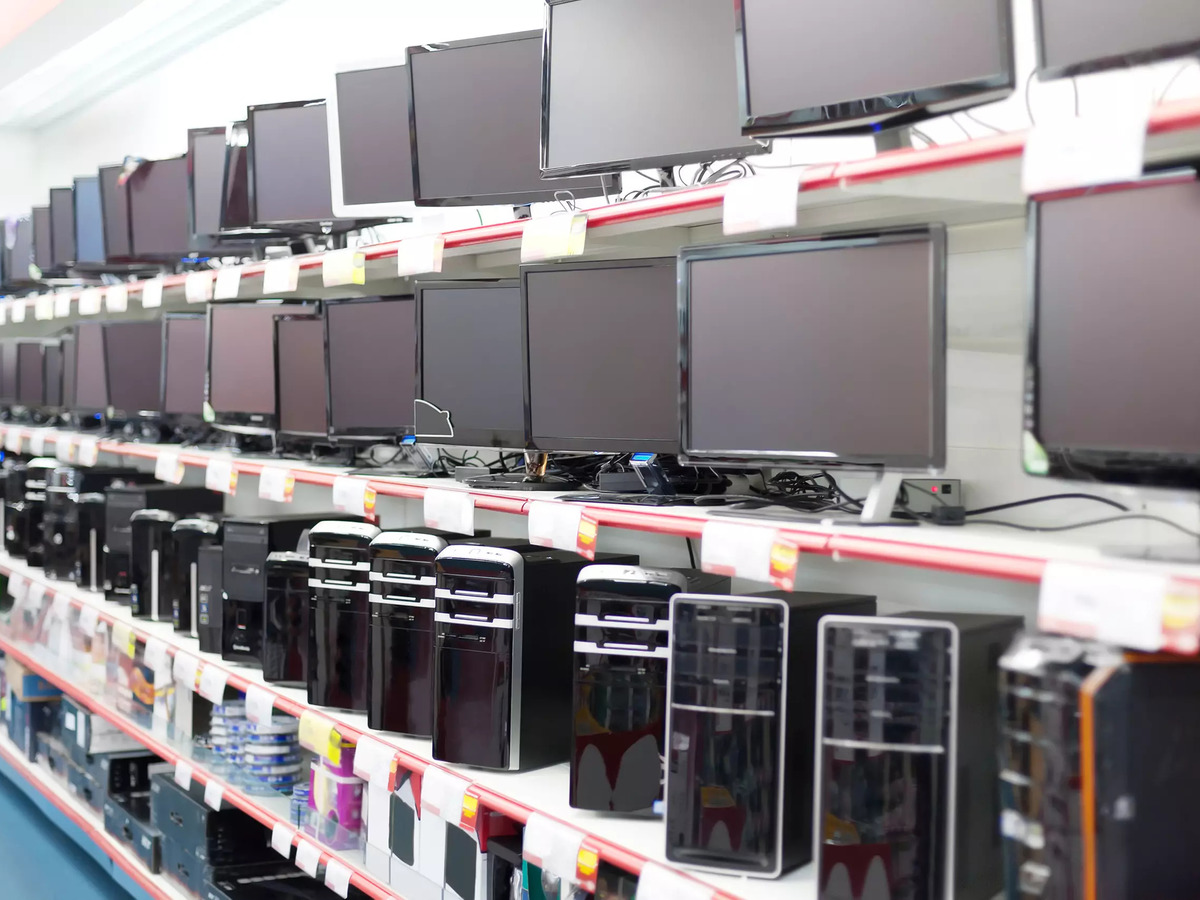No Proposal to Restrict Imports of More Electronic Products: Commerce Secretary 2023

No Proposal to Restrict Imports of More Electronic Products: Commerce Secretary 2023
According to Commerce Secretary Sunil Barthwal, the government is not considering any proposals to impose limitations on importing additional electronic devices.
“We keep an eye on our imports. Additionally, we want to avoid becoming overly dependent on any one nation. Both our exports and our imports need to be more diverse. We don’t want to rely exclusively on a small number of import providers.

To evaluate the position, we are consulting with relevant ministries. We are examining patterns, but nothing is imminent right now,” he told reporters in this place.
For security reasons and to encourage domestic manufacture, the government has proposed import restrictions on laptops, personal computers, and several other electronic gadgets beginning November 1.
Before November, the importation of these gadgets was free, but after that, importers would need a licence. Only genuine users and those with prior expertise can use the support.
The government has implemented several measures, such as the Production Linked Incentive (PLI) plan, to promote domestic computer hardware manufacture, and many global corporations have already established manufacturing facilities. In cooperation with the ministries, we will impose the limitation on new items as and when we see necessary. However, there isn’t one underway right now,” the Secretary continued.

In a significant statement in 2023, the Commerce Secretary made it clear that there are no plans to restrict importing of additional electronic products into the country. This comes when global trade relations are increasingly complicated due to various factors, including the COVID-19 pandemic, geopolitical tensions, and the push for self-reliance in multiple countries.
For several years, [Country Name] has been one of the largest importers of electronic products globally. Concerns have been raised over the reliance on imports for essential and strategic goods, including electronics, given the possible disruptions to global supply chains, like those experienced during the COVID-19 pandemic.
In this context, various voices, including industry players and policymakers, have called for measures to restrict or reduce imports of certain electronic products and promote domestic manufacturing and production.
The Commerce Secretary, in a press conference held in [City Name], announced that the government currently has no plans to impose new restrictions on the import of electronic products. According to the Secretary, the government is aware of the balance that needs to be maintained between encouraging domestic industry and keeping the country open to global trade.
There are no proposals to place additional restrictions on importing electronic products.

The Secretary also emphasized that the government continues to explore ways to support and bolster the domestic electronics manufacturing sector without resorting to import restrictions.
Businesses that rely on importing electronic products can expect stability in their operations without fear of sudden policy changes. Domestic producers may need to find ways to be more competitive against imported products without relying on protectionist measures.
The announcement could encourage foreign and domestic investments in the electronics sector, as it signals policy stability.
Opting not to impose new import restrictions potentially fosters better trade relations with key partner countries, avoiding possible retaliatory measures. This decision likely means continued access to various electronic products at competitive prices for consumers.
The statement may be indicative of a nuanced approach to achieving self-reliance. Instead of import restrictions, the focus might be on incentivizing and supporting domestic industries to become more competitive.
While the government has ruled out import restrictions, it has proactively launched various initiatives to promote domestic electronics manufacturing.
Implementation of schemes that offer incentives for domestic manufacturing of electronics. It invests in the necessary infrastructure, including special economic zones for electronics manufacturing.

Initiatives to upskill the labour force to meet the needs of a growing electronics manufacturing sector. Reforms aimed at making it easier for electronics manufacturers to set up and run their operations efficiently.
The statement from the Commerce Secretary in 2023 marks a significant step, clarifying that the government is looking to balance promoting domestic industry and remaining an active player in global trade.
By avoiding additional restrictions on electronic imports, the government is steering a course that encourages domestic competitiveness through positive measures rather than protectionism. This strategy could pay dividends in the long term by fostering a robust, competitive, and self-reliant electronics sector.
:max_bytes(150000):strip_icc()/GettyImages-998996486-5c006305fe7a451288907571bb201b15.jpg)
While this approach maintains the country’s reputation as a reliable trading partner, it also reaffirms its commitment to fostering a strong and sustainable domestic electronics manufacturing industry. The actual test, however, will be in implementing these supportive policies and how they translate into tangible growth and development for the country’s electronics sector.




